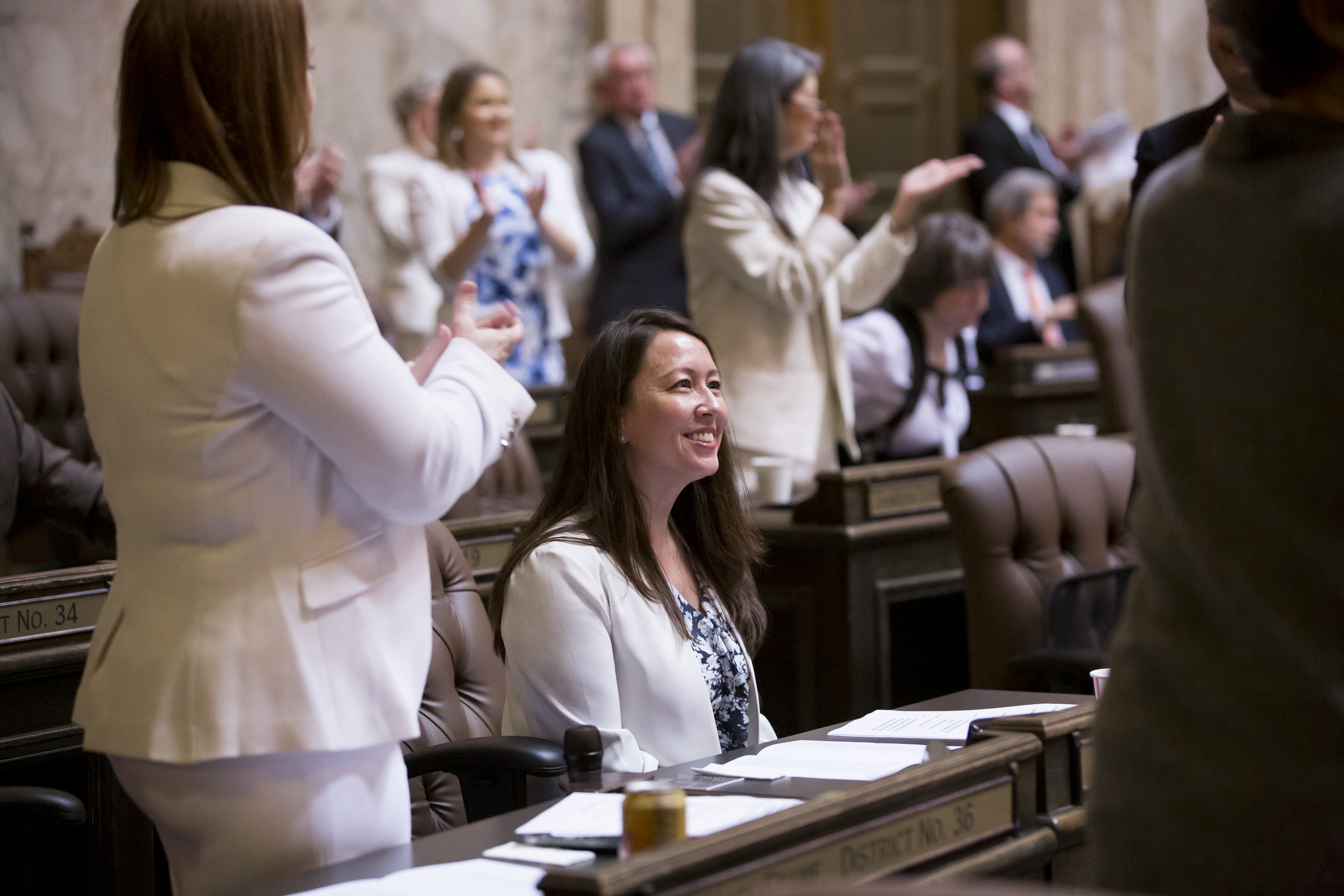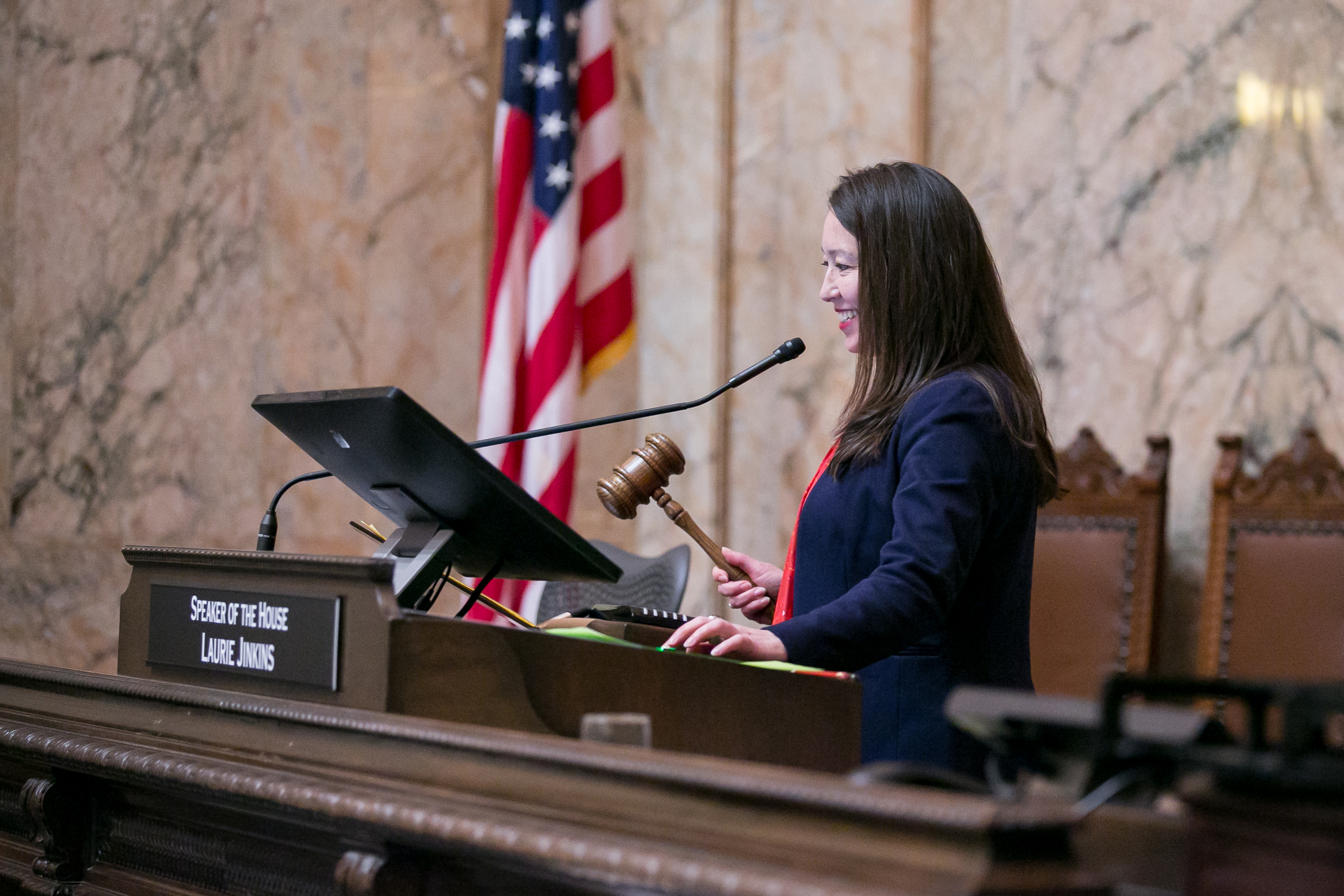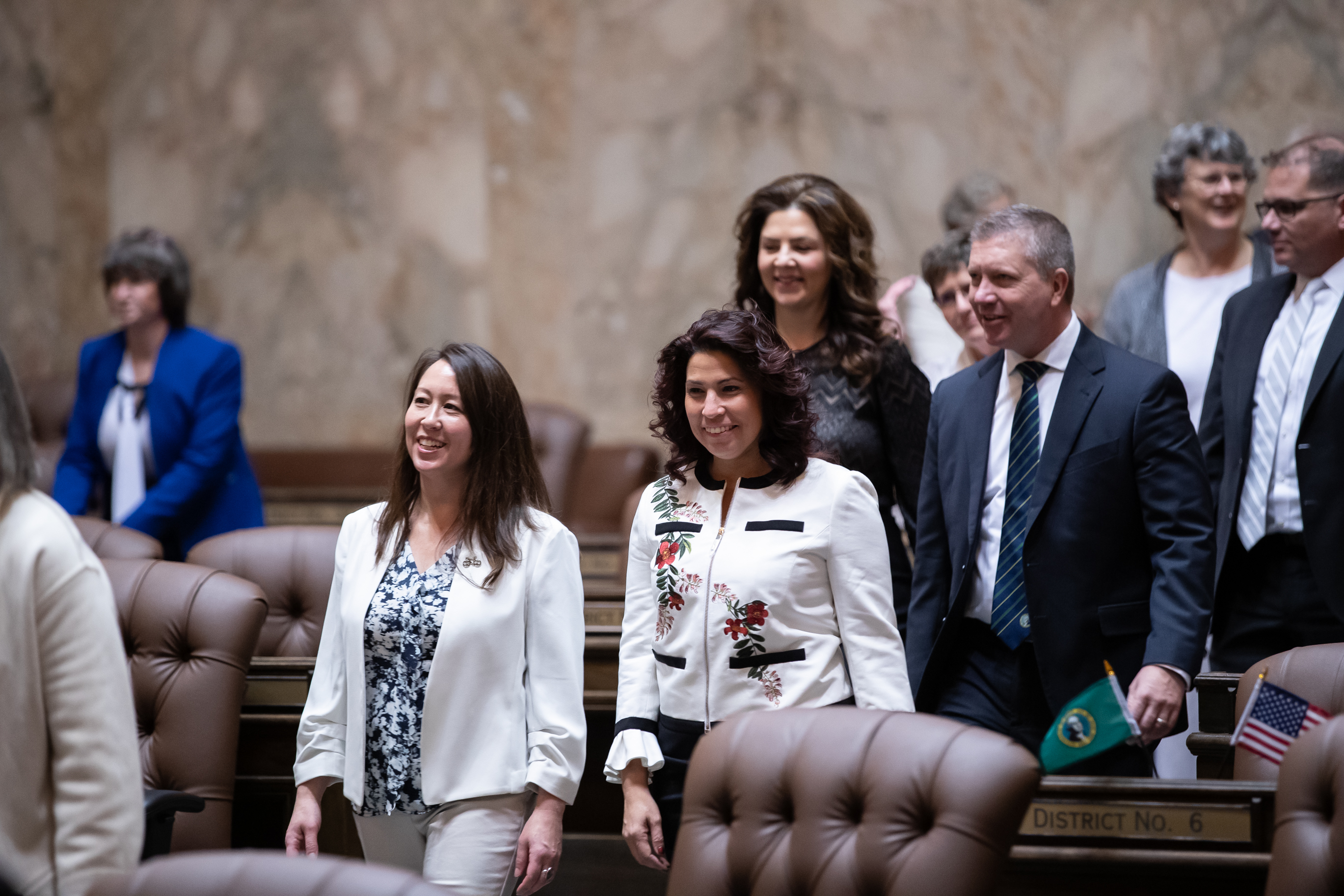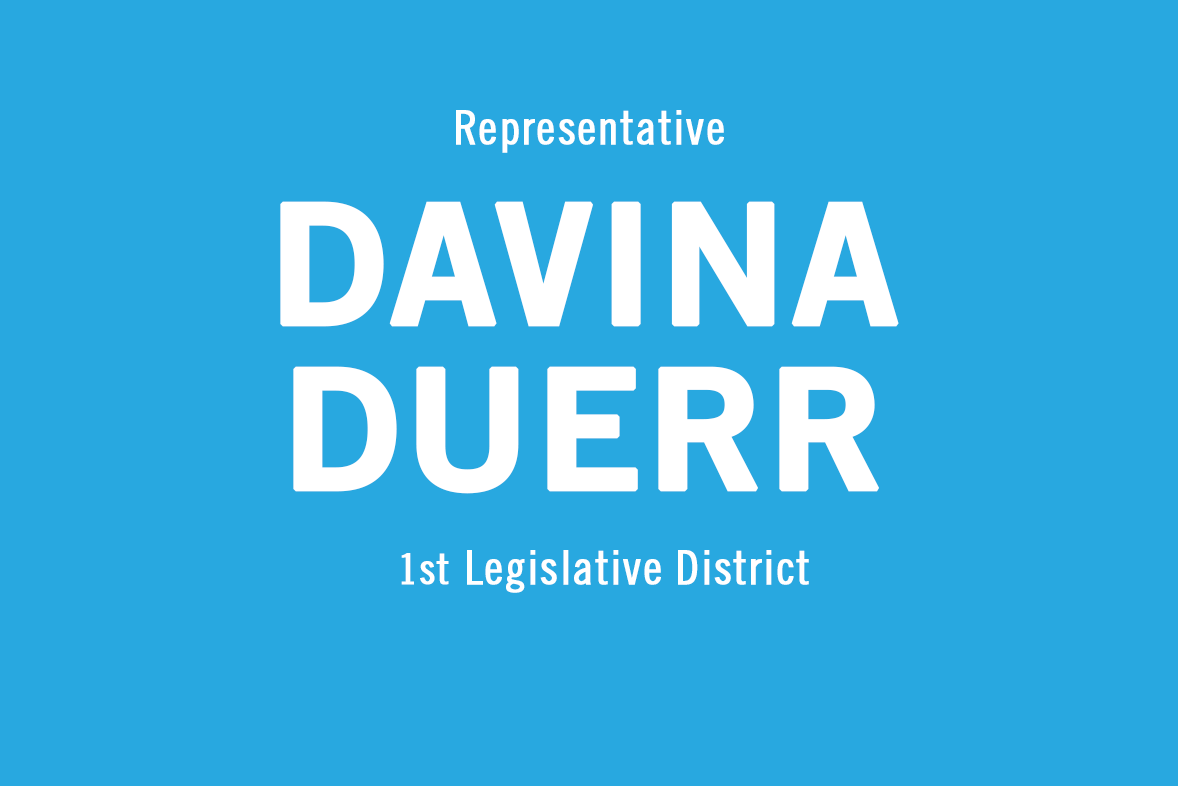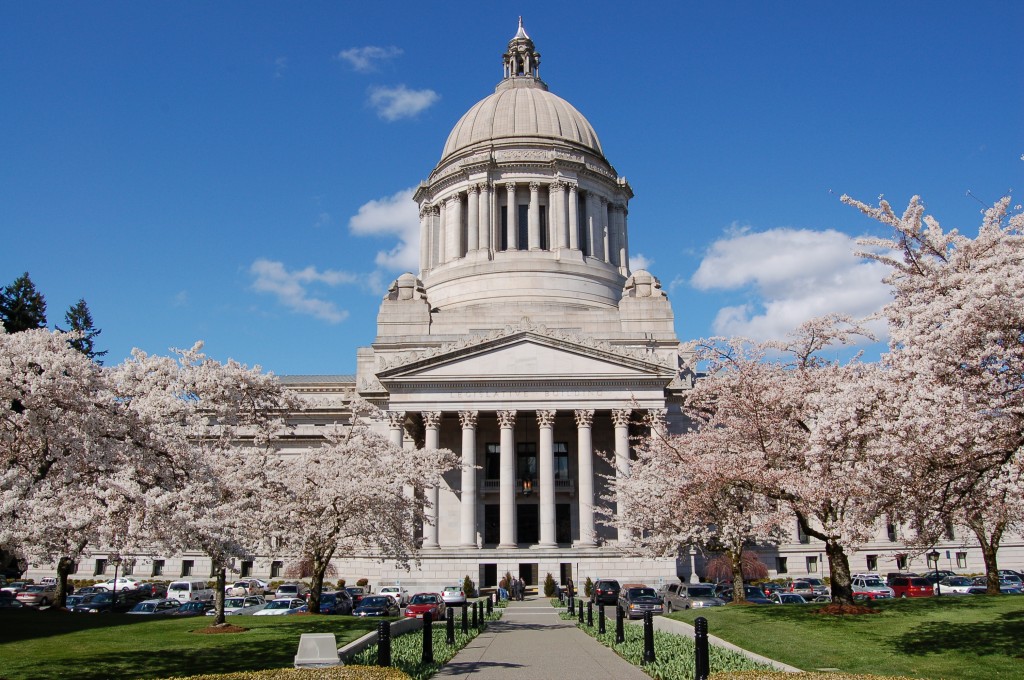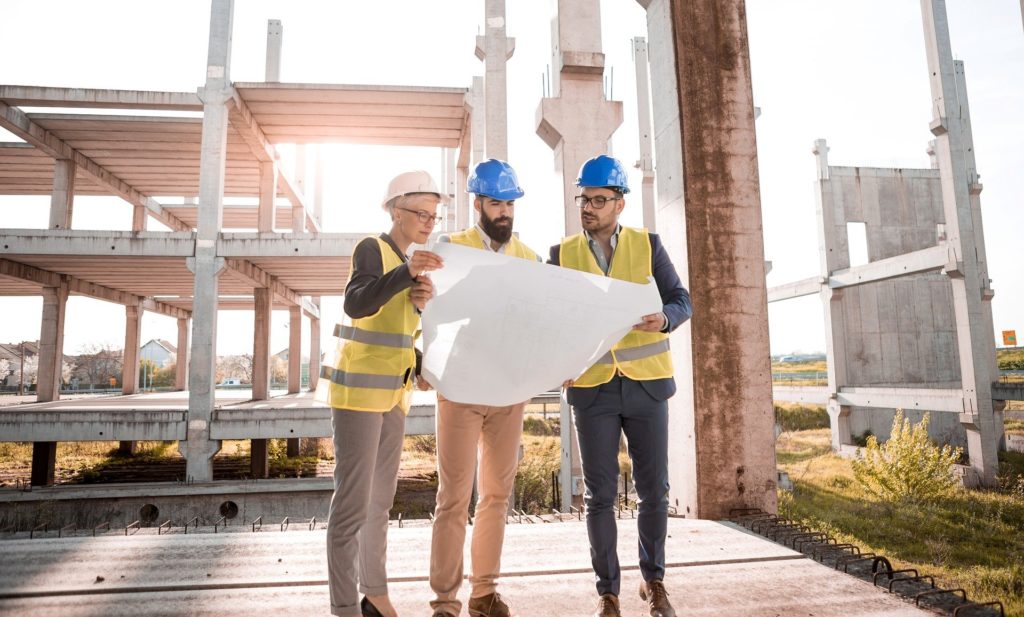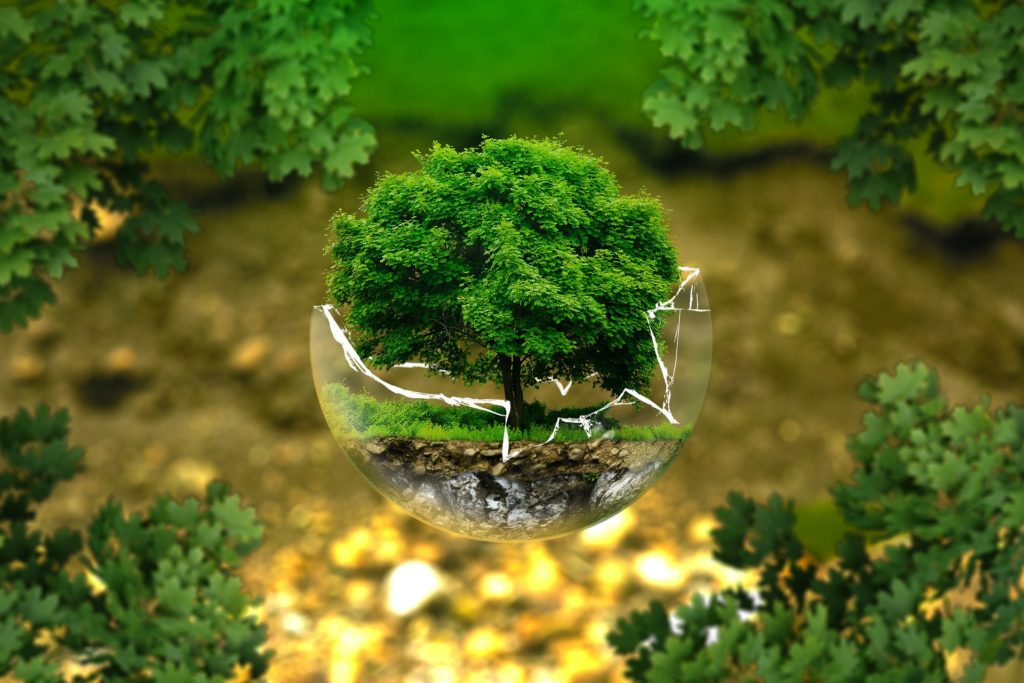Dear neighbors,
Climate change is already harming all four corners of Washington state. The damage means higher costs for taxpayers, homeowners, and businesses.
- extreme weather, including huge storms and snow in April
- drought and failing crops
- floods and landslides
- rising sea levels
The United Nations Panel on Climate Change has issued several report that say the time to act is now. The problem will only get worse, and more expensive, the longer we wait.
And we can’t expect others to magically fix this. Washington state can, and should, help lead the way.
Taking action
This session in Olympia, our priorities matched up with the UN panel’s recommendations.
People rightfully focus on transportation and electric vehicles, since cars and trucks emit so much CO2. However, people are surprised to learn how much buildings, landfills, and other sources of emissions contribute to climate change.
This session, we worked hard on those issues, with legislation on:
- retrofitting existing buildings to be more energy efficient
- minimizing or eliminating fossil fuels from new construction
- making household appliances far more efficient
- reducing methane from landfills and increasing the use of composting (House Bill 1663)
- electrification of buildings to replace less efficient and more polluting options like natural gas (House Bill 1770)
- Tracking data on embodied carbon in structural materials (HB-1103)
- Adding Climate Change as a planning requirement for local governments (HB-1099)
I was proud to write or co-sponsor many of these bills, and many of them passed both chambers and were signed into law.
Myths versus truths
Many of these bills shatter enduring myths about protecting our environment.
We can often save energy and money by adopting cleaner technology and more sustainable practices.
Your house and your car are two great examples. People who’ve switched from driving alone in a gas car–to biking, e-bikes, mass transit, or an electric car–are finding they save a tremendous amount of money that went to buying gas. And in your home, better insulation, heat pumps, solar roofs, and other ideas can drastically cut your electricity bill.
There are also tremendous job and business opportunities in Washington state when we are global leaders in new products like electric airplanes and cross-laminated timber.
The flip side is that doing nothing will cost us all more, since cleaning up the damage due to extreme weather and climate change is extremely expensive.
It costs actually costs more to do the wrong thing. Saving the planet saves money and creates jobs.
How we can work together
The free market is already moving toward clean energy and sustainable building. All of the major automakers are investing heavily to switch to electric vehicles. Businesses are building more sustainably because it saves them money every month.
However, we all have a role to play–as consumers, citizens, and neighbors.
The state and local governments can help lead the way with new building standards and laws, and by setting the table for change. For example, the new state construction budget makes huge investments to build EV charging stations around the state and to bring broadband internet to every corner of Washington. The state has also helped lead the way by building state office buildings that are incredibly energy efficient and switching the state vehicle fleet to hybrids and electrics.
As a consumer, you can help make change happen faster by voting with your pocketbook, and as a citizen, by speaking out at city council or county council meetings to advocate for local improvements and reforms.
The choice we face
It’s easy to get lost in the details and arguments of climate change.
Here is the simple choice that I see: Will we let climate change and pollution ruin this planet, or will we give our kids a better world?
As a mother and lawmaker, I’m fighting hard for my kids, and your kids. They deserve a planet that is full of life. Clean air and unpolluted water. Birds in the sky and animals in the forests.
If you talk to teenagers and 20-somethings, they are passionate about fighting for their planet. They see the choice we face and are clear-eyed about the stakes of this fight. And we need to fight. Wealthy special interests are spending a great deal of money to prevent change. It’s only by working together that we can give our children and their children a healthy, livable planet.
